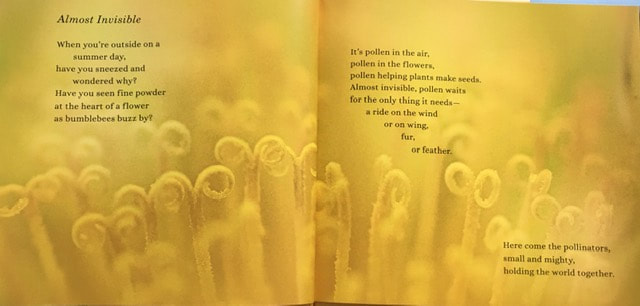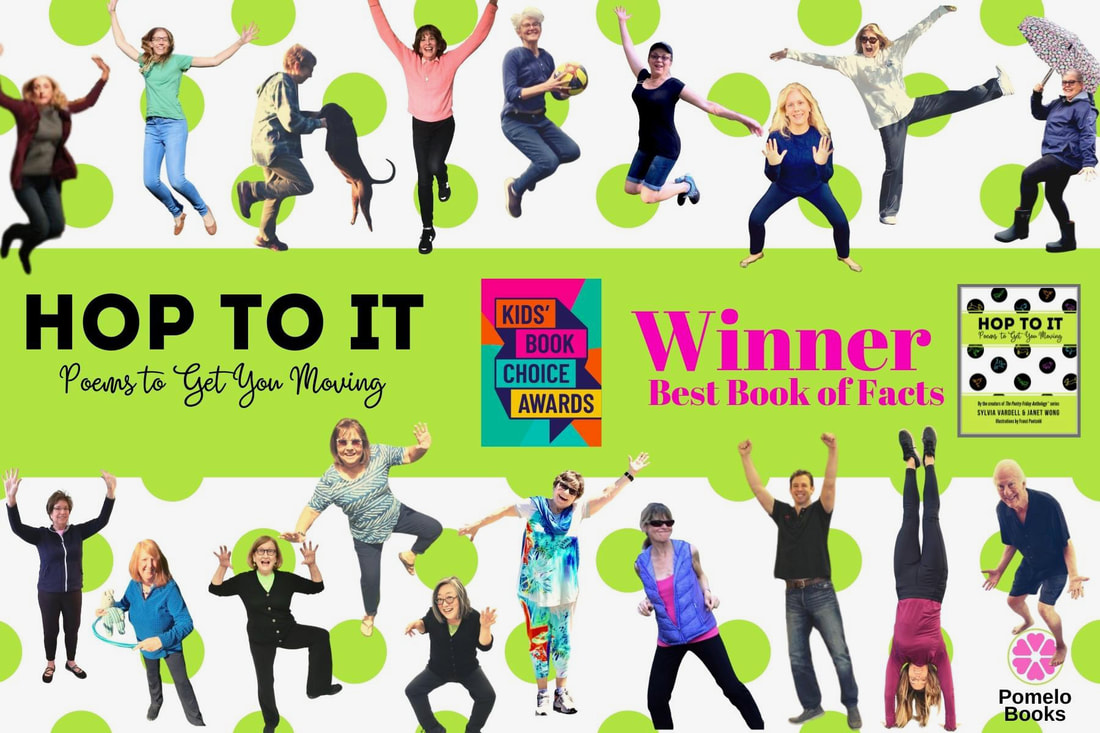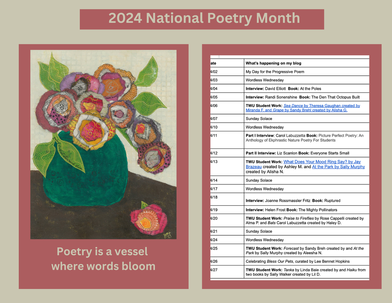
Heidi at my juicy little universe is hosting today.
It's Earth Day weekend and such a great reason to celebrate besides all the poetry goodness. Have you checked in with the 2024 Progressive Poem? For Friday, April 19 Catherine Flynn at Reading to the Core. Today I have an encore interview for Double Feature Friday (in fact the other interview is also an encore interview. Last year, during National Poetry Month, I interviewed Helen Frost. Today, she's back with her new book, The Mighty Pollinators. 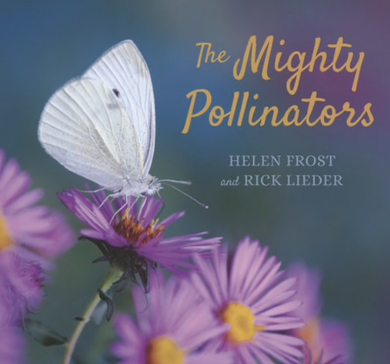
JRM: In my previous interview The Mighty Pollinators was in process. Do you have another project that you are working with him on? What do you enjoy about collaborating with Rick Lieder?
HF:That’s so interesting—I hadn’t remembered that Rick and I were working on this book the last time you and I corresponded! We have several new ideas, but I hesitate to say too much about a possible new project before it becomes more of a sure thing. I enjoy the process of our collaboration. We both pay close attention to the creatures of the natural world, each with our own focus. Rick is a scientist as well as a visual artist, and is knowledgeable and attentive to detail. In my effort to find precisely the right words for my poems, I spend a lot of time outdoors making close observations, and I find that the details in Rick's photographs, and the knowledge I gain from our conversations, enrich and strengthen both the poems and the end-notes. And of course the collaboration works both ways—each of us refining our work in cooperation with the other. JRM: I am sure you researched pollinators in depth. What information did you have to leave out? What was the most surprising tidbit of information you discovered? HF: I was amazed at how much information we were able to include, between the photographs, the poems, and the back-matter. It would have been nice to be more specific about which pollinators are attracted to which plants, for example, but I do think the book will serve as a great introduction for young children to an important and complex topic. Those who are interested, as I would have been at age 3 or 4, can learn more as they grow older. As for new information, I hadn’t thought much about night-time pollinators, and I loved learning more about the bats and moths as pollinators, as well as the little nocturnal mammals who carry pollen in their fur as they scurry around at night. JRM: I love you included the wind and other living creatures that some readers might not consider as pollinators. There are probably other pollinators not included. How did you narrow your focus? HF: We knew we wanted to give attention to bees, because they are so important, but we didn’t want them to carry the whole show. That’s why there is a butterfly on the cover. You’re right that there are way too many different pollinators to include them all, so we tried to focus on the most important pollinators. It would have been fun to include a picture and poem that showed a person hand-pollinating something. I have a pawpaw tree that didn’t bear fruit for a few seasons. I knew it needed to be pollinated with pollen from a pawpaw tree of a different species, so I went to a nearby park and gathered pollen from several different pawpaw trees, then mixed it all up and, using a little paintbrush, spread pollen on my tree’s flowers at just the right time. I was so happy to have the delicious pawpaws a few months later! JRM: Was there a poem you wanted but had to cut? HF: Yes, Rick had some beautiful images of mosquitoes, and we were able to include one of them on the right side of the end-matter pages. We didn’t have space for this poem though: Mosquito I’m a male mosquito. Females are the ones who bite, and only when they need a meal before they lay their eggs. As for me-- I carry pollen, on two feathery antennae, and six skinny legs. JRM. Wow, Helen. Mosquitos would not have been on my list as pollinators. JRM: How can readers support our pollinators? HF:First: don’t kill them! Every year, someone comes to my door offering to “rid your yard of all the creepy crawlies.” This negative attitude toward insects is dangerous to the insects (obviously) but also, for many reasons, dangerous to humans. And then, don’t kill the plants they pollinate. Early spring plants such as dandelions and clover are sources of pollen for the early spring pollinators, so try to avoid mowing them down too soon or spraying them with herbicides. Also important: Plant trees and flowers that are native to wherever you live. Thank you for this thoughtful interview, Jone, and thank you for caring about The Mighty Pollinators. Helen, I am with you about not killing the creepy crawlies (well, I do have to deal with the sugar ants at times but that’s another story).
JRM:Would you have an early draft of a poem and then the final draft so readers can take a peek at the process?
HF: It’s a little embarrassing to show people my early drafts, especially handwritten notebook versions, but I can see how it might be interesting. A couple of notes: When writing in a notebook like this, I start on the right hand page, then continue on the left page—just a quirky habit, but important to know if you’re trying to read this messy early draft. Note the date: 11/15/2020. When children’s lives were upended by the Covid pandemic, Rick and I, along with our editor, Sarah Ketchersid, started thinking about how to help young readers understand how something as small as the corona virus (misheard by one child as “corona pirates”) could change everything so suddenly and dramatically. We thought about other tiny things, and eventually settled on pollen as something “almost invisible” but not quite—very small and very important. like small children themselves, in a way.
Thanks for this fascinating interview and this gorgeous book.
4/19/2024 08:29:38 am
I love seeing a poet's notes, Helen! Doing everything on a computer myself, I both miss the feel of my pen sliding across the page and enjoy backspacing rather than crossing out! Thank you both for sharing your conversation.
Rose Cappelli
4/20/2024 04:11:03 am
Great interview. Thanks, Jone. I've been a fan of Helen's since I read her verse novel, Diamond Willow, years ago. This looks like a fascinating book, and I certainly love seeing her process. 4/20/2024 06:01:35 am
I just shared this new book by Helen and Rick last week and it is a wonderful introduction to the pollinators. Although it's for young ones, I learned some new things, too, so I imagine it can be an introduction for older children, too! Thanks for the interview, Jone, & for the book, Helen! 4/20/2024 11:45:45 am
I love Helen Frost's work and am glad to be vindicated in my refusal to put chemicals on my lawn or suppress the dandelions. Sounds like a book I'd like. 4/20/2024 09:18:43 pm
I begrudgingly have stopped spraying for mosquitos! Sigh! Comments are closed.
|
AuthorAll photos and poems in these blog posts are copyrighted to Jone Rush MacCulloch 2006- Present. Please do not copy, reprint or reproduce without written permission from me. Categories
All
Archives
July 2024
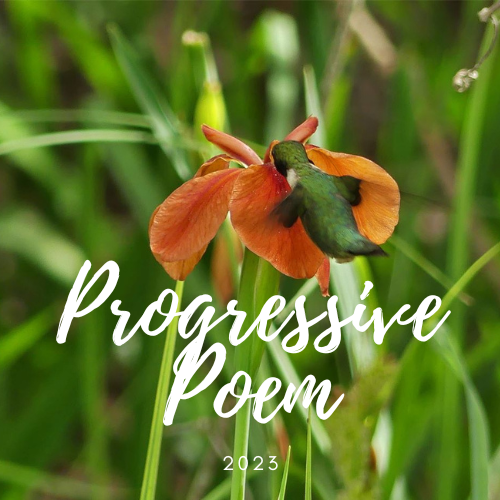
2023 Progressive Poem
April 1 Mary Lee Hahn, Another Year of Reading April 2 Heidi Mordhorst, My Juicy Little Universe April 3 Tabatha, The Opposite of Indifference April 4 Buffy Silverman April 5 Rose Cappelli, Imagine the Possibilities April 6 Donna Smith, Mainely Write April 7 Margaret Simon, Reflections on the Teche April 8 Leigh Anne, A Day in the Life April 9 Linda Mitchell, A Word Edgewise April 10 Denise Krebs, Dare to Care April 11 Emma Roller, Penguins and Poems April 12 Dave Roller, Leap Of Dave April 13 Irene Latham Live You Poem April 14 Janice Scully, Salt City Verse April 15 Jone Rush MacCulloch April 16 Linda Baie, TeacherDance April 17 Carol Varsalona, Beyond Literacy Link April 18 Marcie Atkins April 19 Carol Labuzzetta at The Apples in My Orchard April 20 Cathy Hutter, Poeturescapes April 21 Sarah Grace Tuttle, Sarah Grace Tuttle’s Blog, April 22 Marilyn Garcia April 23 Catherine, Reading to the Core April 24 Janet Fagal, hosted by Tabatha, The Opposite of Indifference April 25 Ruth, There is no Such Thing as a God-Forsaken Town April 26 Patricia J. Franz, Reverie April 27 Theresa Gaughan, Theresa’s Teaching Tidbits April 28 Karin Fisher-Golton, Still in Awe Blog April 29 Karen Eastlund, Karen’s Got a Blog April 30 Michelle Kogan Illustration, Painting, and Writing |

